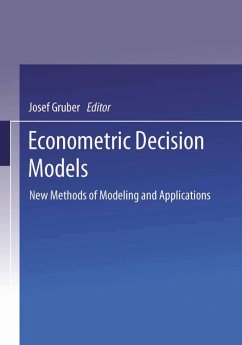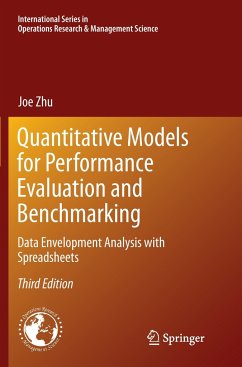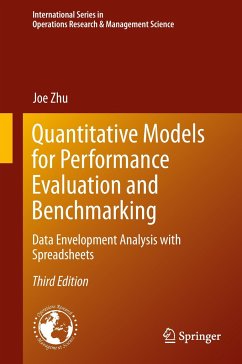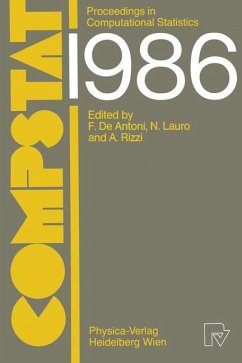
Sensitivity Analysis
An Introduction for the Management Scientist
Versandkostenfrei!
Versandfertig in 6-10 Tagen
98,99 €
inkl. MwSt.
Weitere Ausgaben:

PAYBACK Punkte
49 °P sammeln!
This book is an expository introduction to the methodology of sensitivity analysis of model output. It is primarily intended for investigators, students and researchers that are familiar with mathematical models but are less familiar with the techniques for performing their sensitivity analysis. A variety of sensitivity methods have been developed over the years. This monograph helps the analyst in her/his first exploration of this world. The main goal is to foster the recognition of the crucial role of sensitivity analysis methods as the techniques that allow us to gain insights from quantita...
This book is an expository introduction to the methodology of sensitivity analysis of model output. It is primarily intended for investigators, students and researchers that are familiar with mathematical models but are less familiar with the techniques for performing their sensitivity analysis. A variety of sensitivity methods have been developed over the years. This monograph helps the analyst in her/his first exploration of this world. The main goal is to foster the recognition of the crucial role of sensitivity analysis methods as the techniques that allow us to gain insights from quantitative models. Also, exercising rigor in performing sensitivity analysis becomes increasingly relevant both to decision makers and modelers. The book helps the analyst in structuring her/his sensitivity analysis quest properly, so as to obtain the correct answer to the corresponding managerial question.
The first part of the book covers Deterministic Methods, including TornadoDiagrams; One-Way Sensitivity Analysis; Differentiation-Based Methods and Local Sensitivity Analysis with Constraints. The second part looks at Probabilistic Methods, including Regression-Based methods, Variance-Based Methods, and Distribution-Based methods. The final section looks at Applications, including capital budgeting, sensitivity analysis in climate change modelling and in the risk assessment of a lunar space mission.
The first part of the book covers Deterministic Methods, including TornadoDiagrams; One-Way Sensitivity Analysis; Differentiation-Based Methods and Local Sensitivity Analysis with Constraints. The second part looks at Probabilistic Methods, including Regression-Based methods, Variance-Based Methods, and Distribution-Based methods. The final section looks at Applications, including capital budgeting, sensitivity analysis in climate change modelling and in the risk assessment of a lunar space mission.














